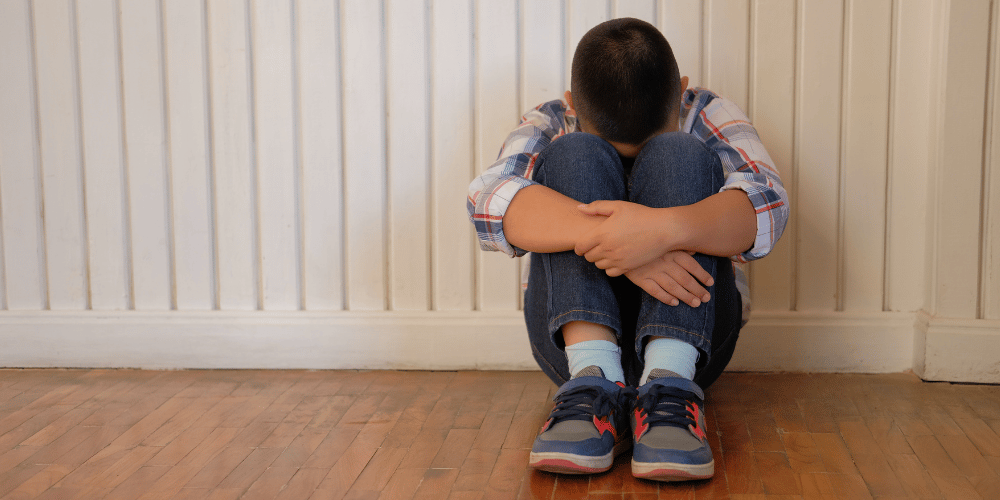If the idea of depression in children sends a chill down your spine or creates a knot in your stomach, you’re not alone. After all, loving parents work hard to protect their children from pain and suffering. They want the best for their kids, and they cringe at the thought of anything stealing the joy that should come naturally to their sons and daughters.
But the truth is, childhood depression is not uncommon. In fact, it’s become more common in recent years. According to one study by the Centers for Disease Control, approximately 2.7 million children between the ages of 3-17 have been diagnosed with childhood depression, making it one of the most common mental health issues for that age group. What’s more, depression tends toward other mental disorders. For example, children with depression are more likely to suffer from anxiety, and teenagers with depression are more inclined toward suicidal thoughts and substance abuse.
In addition, the impact of depression in children can last for decades. Research indicates that childhood depression increases the likelihood of adult depression, making early diagnosis and treatment vital.
Identifying Depression in Children
For parents, the first step in identifying childhood depression is to understand what it entails. Like many mental health issues, kids with depression can demonstrate a wide variety of symptoms that go beyond the typical “blues” of sadness or moodiness. But parents can look for two critical factors.
The first involves timing. It’s normal for children to feel sad or to experience downtimes, but they generally bounce back within a few hours or a few days. Children with depression, though, can wrestle with feelings of sadness and even hopelessness for weeks and months at a time.
The second factor relates to the typical rhythms of life. As children sink into depression, it disrupts their normal day-to-day activities. Their sleep patterns can be erratic, their appetites may wane, and they may struggle with abnormal anxieties. Their school performance can suffer, and they might become more withdrawn socially. Since some children try to hide their feelings, parents need to pay close attention to these warning signs; and if the symptoms linger for at least two weeks, it is time to take action.
How to Respond
While childhood depression is a serious condition, it can be treated effectively once the cause is determined. For example, depression stemming from a biological or chemical imbalance may require medication, while depression rooted in emotional issues or genetic history may be treated with counseling. In many cases, a combination of the two provides the best option.
So, parents who suspect their child is suffering from depression should first turn to their pediatrician for help. Your child’s doctor can help identify or eliminate biological sources of depression. Once the physical factors are eliminated, parents can enlist the services of a mental health professional. Working together, parents and counselors can structure a treatment plan for childhood depression.
Beyond these basics, parents can take at least four other steps to help their child’s journey toward mental health:
1. Learn as much as you can about childhood depression. Rather than attaching a stigma to depression or counseling, educate yourself through research. Again, talk with your mental health professional and ask about resources that will give you a better understanding of what is happening now and what to expect in the future.
2. Keep the lines of communication open. Children may not open up immediately about their depression, but they will take comfort in knowing their parents are available. Most important, never diminish their feelings. What might seem irrational to adults can be incredibly real to children with depression—and we must respect those feelings.
3. Take care of your own mental health. Battling depression in children puts a strain on the parents as well as the child. So, find ways to care for yourself so you can devote time and energy to your child’s recovery. Surround yourself with people who will support you and keep you sharp (Proverbs 27:17). And, since children whose parents suffer from depression are at a significantly higher risk for depression themselves, don’t be afraid to reach out to a counselor yourself if necessary.
4. Pray for your child. The Bible says that prayer makes a difference, so talk with God about what’s going on in your child’s life. Don’t just pray that the depression will lift, though. Pray that your children will also recognize their personal value and worth in your eyes and in God’s eyes. (Philippians 4:6-7)
Take Steps Towards Love and Support
As with adults, depression in children is a sickness, not a sin. So, there’s no reason to feel guilty or embarrassed. Instead, give your child all the love and support you can. As your family teams with physicians and mental health professionals, your son or daughter can find hope again and experience their best life, the life God intended for them.












